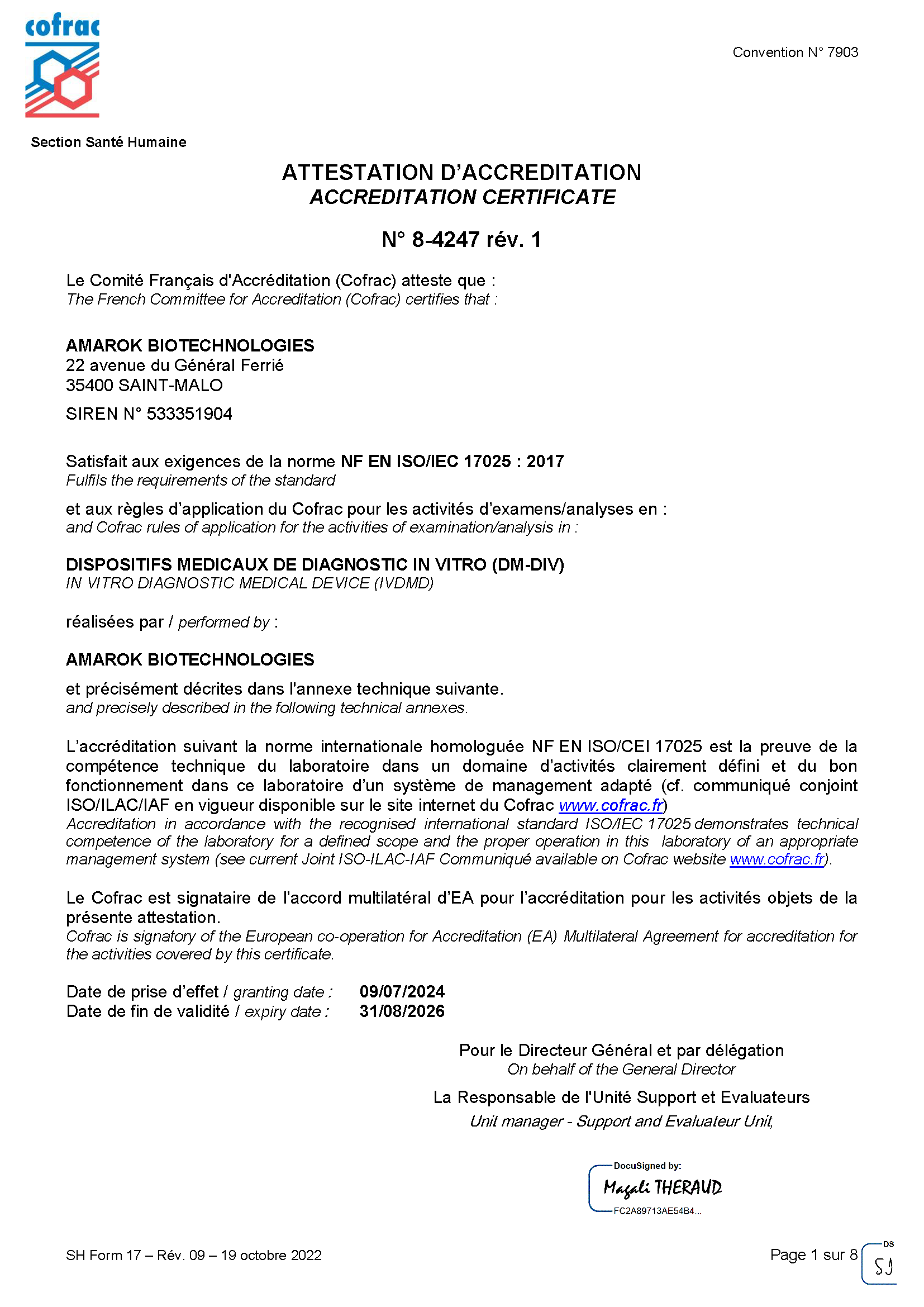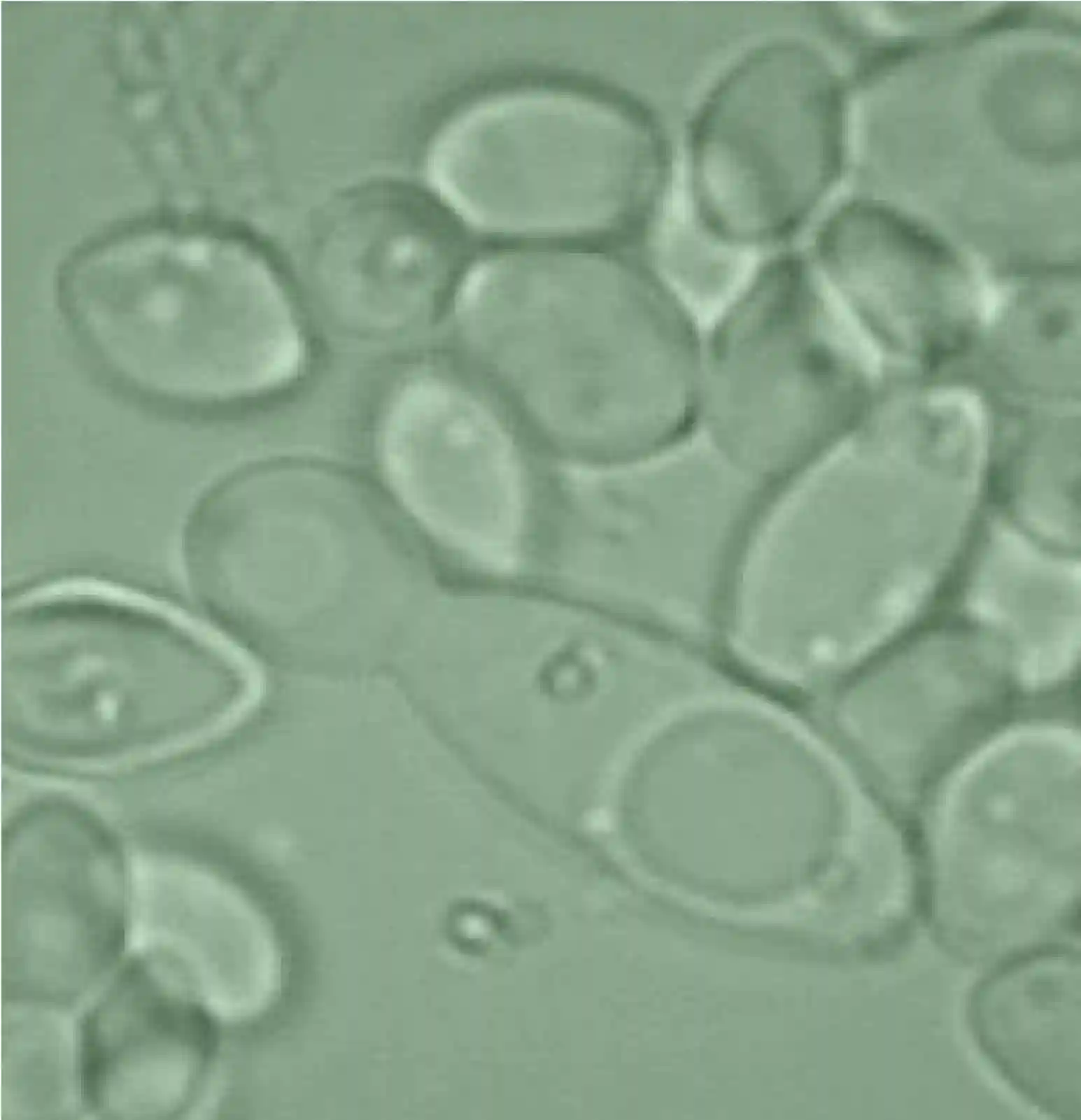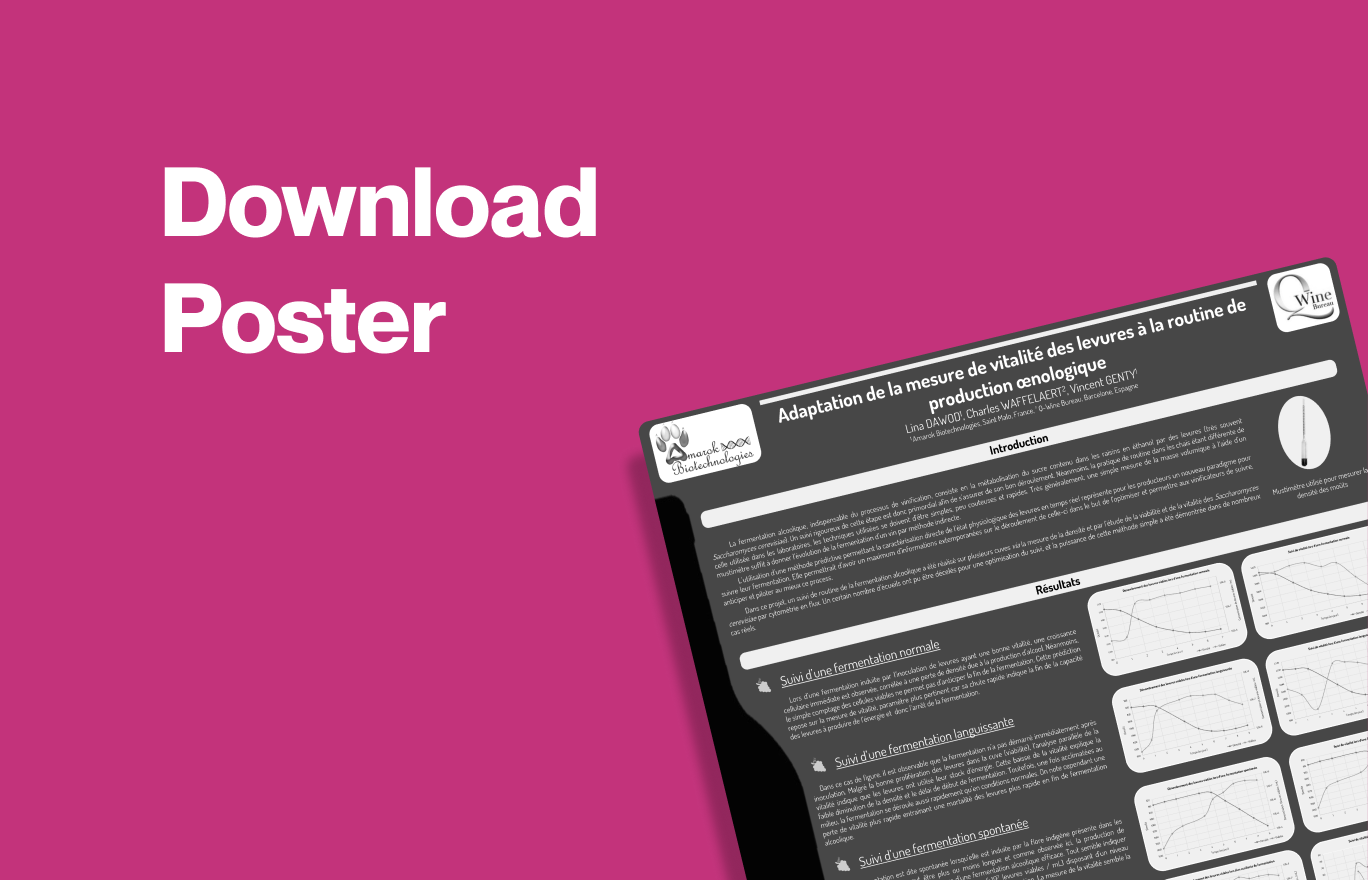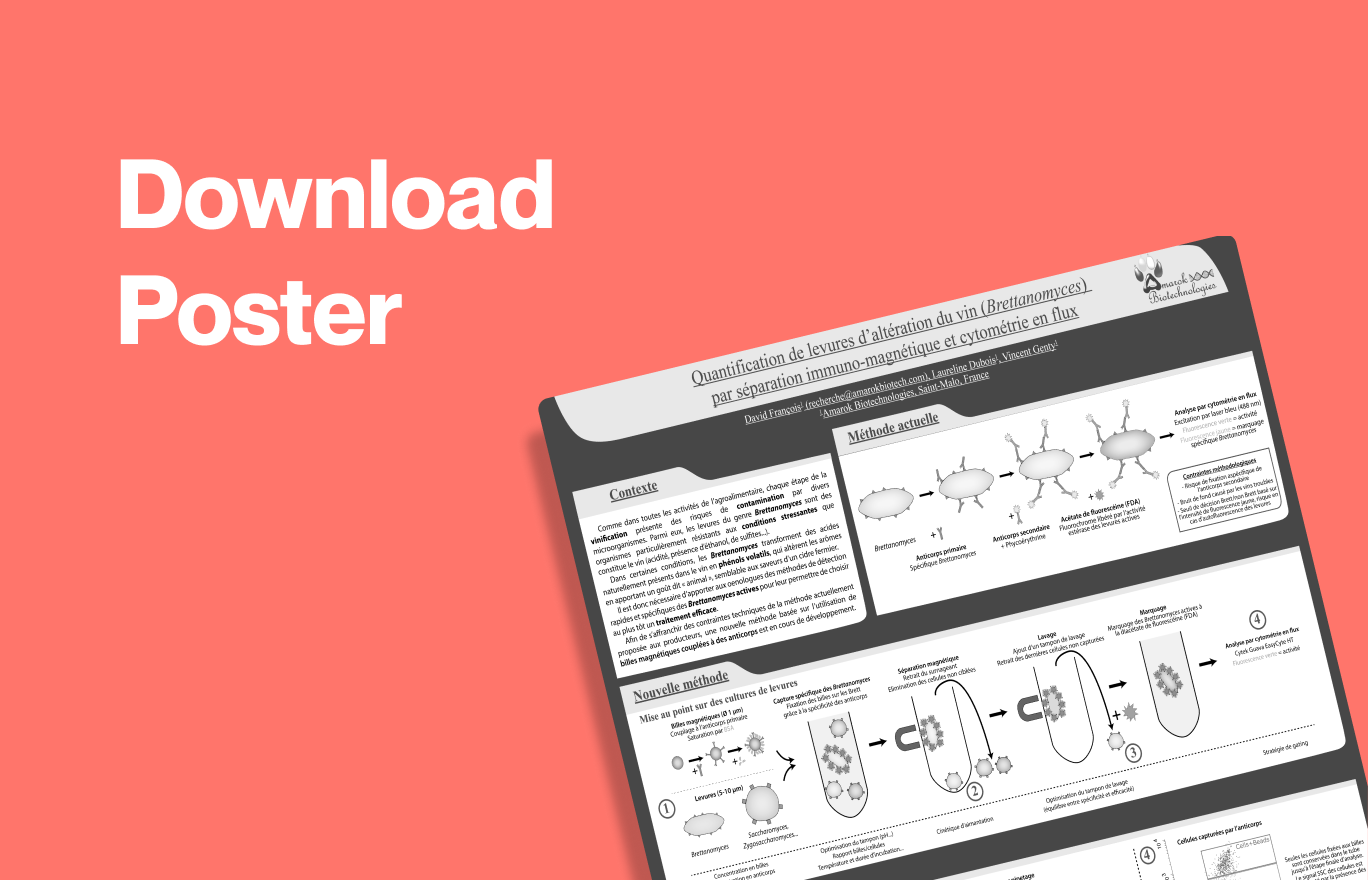
Accueil › Food and environmental hygiene control in Brittany
/ Food and environmental hygiene control in Brittany
Guarantee safety sanitary food and the environment
Our food and environmental hygiene control laboratory is committed to being your preferred partner to ensure the quality of your biological and microbiological analyses.

/ The services of our food and environmental hygiene control laboratory

Sanitary Control Plan (SCP) and HACCP policy
Implement a health control plan that complies with regulatory references in terms of food hygiene. We also support you in the development and implementation of a HACCP policy to ensure the safety of your products.

Hygiene control and audit
Carry out complete hygiene checks and personalized audits for the sale or purchase of a business, or for the launch of a new activity. Our team provides you with in-depth assessments and practical advice.

Microbiological analyzes
Benefit from the expertise of our teams in microbiology analysis. We have become a reference laboratory, capable of innovating to meet the specific needs of its customers. Our success in developing a globally unique method in the field of wine fermentation control.
Advice
Benefit from local assistance adapted to your specific needs. We offer you advice on the analyzes to be carried out, as well as on the harmonization of sampling and processing protocols.
Tailor-made biological analyzes
Our experience in the development and validation of methods has allowed us to acquire real expertise in rapid analysis. If you are interested in our products, but the acquisition of a specific analytical platform does not meet your needs, take advantage of our tailor-made analysis service.
Milky Way LAB
We have developed the MILKY WAY LAB kit to enable the quantification of acidifying lactic acid bacteria by flow cytometry, specifically meeting the requirements of Protocol A of ISO19344 / IDF 232. The latter, published in 2015, validated the flow cytometric method for this type of analysis in dairy products and sourdough.
Would you like to request a quote or
discuss your analysis program?

/ Why use Amarok Biotechnologies?
Proximity & Local Expertise
Our location in Saint-Malo allows us to understand the specific needs of the region and to offer solutions adapted to the Breton environment.
Quality & Safety
Our services meet the highest standards in the industry. Our ISO 9001 certification illustrates our rigor and excellence in quality.
Listening and Adaptability
Our team is available to provide you with personalized and tailored advice.
/ They trust us

John Doe
Lorem ipsum dolor sit amet consectetur. Leo dolor viverra vitae etiam fringilla mauris pellentesque varius et. Mus et sed pretium diam. Tristique dictum aenean lorem aliquam ac integer arcu. Mi tincidunt molestie viverra dapibus.

John Doe
Lorem ipsum dolor sit amet consectetur. Leo dolor viverra vitae etiam fringilla mauris pellentesque varius et. Mus et sed pretium diam. Tristique dictum aenean lorem aliquam ac integer arcu. Mi tincidunt molestie viverra dapibus.
/ Our news

News
Launch of the revolutionary Bretta test B method for immunomagnetic purification of Brettanomyces coupled with flow cytometric analysis
Discover the future of oenology with Bretta Test B: a revolutionary advance in the detection and purification of Brettanomyces in wine.

Posters
Adaptation of yeast vitality measurement to the œnological production routine
Winemaking is based on alcoholic fermentation which induces the transformation of grape sugar into ethanol, mainly under the action of Saccharomyces cerevisiae.

Posters
Quantification of wine spoilage yeasts, Brettanomyces, by immuno-magnetic separation and flow cytometry
The risk of contamination by Brettanomyces during the winemaking process is an economic threat for producers.

Posters
Evaluation of analytical performance of the sthemO DDi M assay on the sthemO 301 analyzer
D-dimers (DDi) arise from the degradation of fibrin by plasmin. Precise measurement of their levels is essential for managing the risk of venous thromboembolism in ambulatory patients or in monitoring disseminated intravascular coagulation.

Posters
Evaluation of the accuracy of sthemO routine test performance on the sthemO 301 analyzer

News
Amarok Biotechnologies, a French performance evaluation laboratory, renews its ISO 17025:2017 accreditation with an extension to blood group immunohematology

News
Launch of the revolutionary Bretta test B method for immunomagnetic purification of Brettanomyces coupled with flow cytometric analysis
Discover the future of oenology with Bretta Test B: a revolutionary advance in the detection and purification of Brettanomyces in wine.

Posters
Adaptation of yeast vitality measurement to the œnological production routine
Winemaking is based on alcoholic fermentation which induces the transformation of grape sugar into ethanol, mainly under the action of Saccharomyces cerevisiae.

Posters
Quantification of wine spoilage yeasts, Brettanomyces, by immuno-magnetic separation and flow cytometry
The risk of contamination by Brettanomyces during the winemaking process is an economic threat for producers.

Posters
Evaluation of analytical performance of the sthemO DDi M assay on the sthemO 301 analyzer
D-dimers (DDi) arise from the degradation of fibrin by plasmin. Precise measurement of their levels is essential for managing the risk of venous thromboembolism in ambulatory patients or in monitoring disseminated intravascular coagulation.

Posters
Evaluation of the accuracy of sthemO routine test performance on the sthemO 301 analyzer

News
Amarok Biotechnologies, a French performance evaluation laboratory, renews its ISO 17025:2017 accreditation with an extension to blood group immunohematology

News
Launch of the revolutionary Bretta test B method for immunomagnetic purification of Brettanomyces coupled with flow cytometric analysis
Discover the future of oenology with Bretta Test B: a revolutionary advance in the detection and purification of Brettanomyces in wine.

Posters
Adaptation of yeast vitality measurement to the œnological production routine
Winemaking is based on alcoholic fermentation which induces the transformation of grape sugar into ethanol, mainly under the action of Saccharomyces cerevisiae.

Posters
Quantification of wine spoilage yeasts, Brettanomyces, by immuno-magnetic separation and flow cytometry
The risk of contamination by Brettanomyces during the winemaking process is an economic threat for producers.

Posters
Evaluation of analytical performance of the sthemO DDi M assay on the sthemO 301 analyzer
D-dimers (DDi) arise from the degradation of fibrin by plasmin. Precise measurement of their levels is essential for managing the risk of venous thromboembolism in ambulatory patients or in monitoring disseminated intravascular coagulation.

Posters
Evaluation of the accuracy of sthemO routine test performance on the sthemO 301 analyzer
/ FAQ
Is the FSMP mandatory?
The Food Safety Management Plan (FSMP) is a mandatory document for establishments that handle, process, and distribute food products. It is mandated by European regulation through the “Hygiene Package” (Regulation (EC) No852/2004 on the hygiene of foodstuffs and Regulation (EC) No 853/2004 on food of animal origin. It details the measures taken to ensure food hygiene and safety.
What must the FSMP include?
The Food Safety Management Plan must include :
- good hygiene practices ;
- HACCP plan
- management of non-conforming products;
- traceability procedures.
How to carry out a hygiene audit in your restaurant?
The team or individual carrying out the audit must be trained in food hygiene and safety.
They must check :
- the condition and cleanliness of premises and equipment;
- staff compliance with hygiene procedures;
- traceability and food safety documents.
If necessary, samples may be taken for microbiological analysis of surfaces and foodstuffs.
The auditor will produce an audit report, including measures to be taken to correct any non-conformities identified.
Here are the advantages of calling in a specialized external auditor:
- Precise identification of real, even hidden problems, which may be underestimated or overlooked internally by staff due to familiarity with the site.
- Expertise in food hygiene and safety, ensuring compliance with legal requirements.
- Enhanced credibility with customers and health authorities.
- Proof of commitment to quality and food safety, which is a marketing argument for customers.
- Save time and resources, as the audit will be carried out in an optimized and efficient way.
- Improvement of procedures and resolution of identified problems thanks to expert advice
- Prepare for official health inspections, by verifying compliance with all regulatory standards.
What is HACCP in the catering industry?
HACCP (Hazard Analysis Critical Control Point) is a preventive method for ensuring food safety. It is applied in the catering industry (mass catering, fast food, etc.) and in the food processing industry. Its aim is to identify, assess and control hazards (biological, chemical or physical) with regard to hygiene. Although HACCP is not a certified standard as such, it is an integral part of French and European food hygiene regulations, in particular Regulation (EC) no.582/2004.
In the foodservice sector, the adoption of an HACCP approach contributes to compliance with regulatory standards and reinforces consumer confidence in the quality and safety of food products.
All commercial catering establishments are required to have a member of staff – the “hygiene referent” – trained in the HACCP system by an organization recognized by the DRAAF (N° ROPHYA). Although this training is generally considered to be valid for life, it is advisable to keep abreast of the latest regulations and practices. This can take the form of ongoing training sessions or refresher courses.
What are the HACCP principles?
The HACCP approach is based on 7 principles:
- Analysis of potential hazards (biological, chemical or physical) that may affect food safety.
- Determination of Critical Control Points (CCPs) where hazards can be prevented, eliminated or reduced to acceptable levels.
- Establishment of critical thresholds: setting maximum and/or minimum thresholds at which hazards must be controlled at CCPs.
- Setting up CCP monitoring systems to ensure continuous control.
- Definition of corrective actions when a CCP is not controlled.
- Set up verification procedures to ensure that the HACCP system is working properly (audits, tests, etc.).
- Record all procedures in a file to ensure complete traceability.
What is a restaurant self-monitoring?
Self-monitoring is the set of measures and procedures that a restaurant implements to ensure compliance with hygiene and food safety standards. It is the responsibility of the owner, and must be customized to meet the specific needs of each restaurant.
In accordance with the “Hygiene Package”, it is mandatory to set up a self-checking file as soon as the business is created. This must include an analysis of food safety risks in line with the HACCP approach, and describe the internal organization set up to prevent them. Self-checks are recorded on follow-up sheets. Any change in procedures or in the establishment’s environment must lead to an update of the documents.
Am I obliged to have control analyses?
European legislation on food hygiene and safety, known as the “Hygiene Package”, requires restaurateurs and all professionals in the food sector to carry out control analyses. This includes the adoption of HACCP principles, which may require control analyses.
Food establishments often call on specialist laboratories to carry out these quality analyses and to draw up a microbiological monitoring program specific to their needs. The frequency of these analyses is not specified by legislation. However, it is advisable to adapt them according to the risk analysis specific to each establishment. The recommendations of an accredited laboratory can be particularly useful in ensuring effective management of health risks.
Contact us
Would you like to request a quote or discuss your projects?
Privacy Policy




